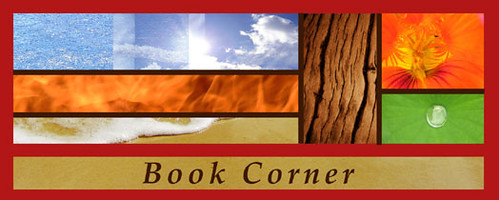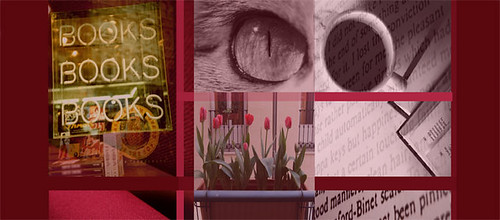I’ve always found the short story to be the novel’s poor relation. I love a fat book, groaning with characters and rich with parallel storylines, and in comparison short stories have seemed meagre and slightly disappointing (with the except of Raymond Carver). This weekend, I read a collection of short stories by Andrea Lee called Interesting Women, which is rich in its observations, its eccentric characters, its sensual images and wit. Almost every story was as satisfying as a novel.
I came to the book knowing nothing about Lee. After reading it, I googled her and discovered that she is an American living with her second husband, an Italian count, in Turin. She is the daughter of a Baptist minister from Philadelphia, and has said that living in Italy as a foreigner is akin to living in the USA as an African-American, where she felt like a foreigner.
Most of her stories revolve around American women who have relationships with Italian men. After the first story, which tells the tale of a woman (American) who buys the services of two prostitutes as a birthday present for her much older (Italian) husband, I was still feeling sceptical. It wasn’t the act of hiring that held me at bay, but more the concept of bored, over-civilised Europeans who are so jaded that nothing is special enough to engage their attention. I felt I didn’t want to read about the problems of a super-rich overclass, for whom everything must be exquisite, from their homes to their women to their food. But there were moments in the story that drew me in. Despite myself, I liked the protagonist, Ariel, who goes about the business of arranging her husband’s birthday surprise with a slightly plodding wifely practicality. Compared to her mother and mother-in-law, and her two half-Italian daughters, Ariel is “lamentably conventional”. However, she does the unthinkable, has sex with her husband afterwards, and lies back knowing that she has kept the prostitute’s number - just in case. The bizarre becomes oddly domestic.
While Lee hints at the strangeness that may underlie many a marriage, she is also hyper-aware of the alienating effect of different cultures. In another story called Brothers and Sisters Around the World, a wife (American) and her husband (French-Italian) are holidaying with their small child in Madagascar. The wife describes how mismatched a couple they are:
“I sometimes think the secret is that we don’t know each other and never will. Both of us are lazy by nature, and that makes it convenient to hang onto the fantasies we conjured up back when we met in Milan: mine of the French gentleman-adventurer and his of a pliant black goddess whose feelings accord with his.”
Two local girls, dancers at a nearby club, hang out at the beach near their house. One day, they score a ride with the husband, Michel, in his boat and this somehow accords them power over his wife. They provoke her with loud comments and ribald laughter. Acting on pure instinct, she marches onto the beach, slaps the ringleader in the face and sees them off in French. Later she is ashamed of her behaviour, but discovers she has earned the respect of the girls and indeed the village. Her husband, stunned, says, “You must really love me.” She describes meeting the girls on the beach the next day:
“All of us know perfectly well that the man - my European husband - was just an excuse, a playing field for our curiosity. The curiosity of sisters separated before birth and flung by the caprice of history. Now in this troublesome way our connection has been established, and between my guilt and my dawning affection I suspect I’ll never get rid of these two. Already in my mind is forming an exasperating vision of the gifts I know I’ll have to give them: lace underpants; Tampax; music cassettes; body lotion - all of them extracted from me with the tender ruthlessness of family members anywhere.”
My favourite story in the collection is the eponymous Interesting Women. When I first picked up the book, I thought the title was weak. Interesting is about as interesting an adjective as nice, so anodyne as to be practically meaningless. In the story, the protagonist complains that the world, and indeed her hotel in Thailand where she is staying with her 11-year-old daughter, is swarming with interesting women. The interest is never sexual but “schoolgirl crushes in disguise, instant friendships that last as long as it takes to swop tales of love and desperation”. Here men are noticeably absent, apart from two male models who decorate the hotel pool with their perfect bodies, and the focus is on the relationships between women. I think I liked this story best because tales of wives hiring hookers for their husbands bring out my middle-class anxiety, as do rich black sisters slapping poorer ones. This tale of women making instant friends - something I am good at too - sat more comfortably with me. However the instant friendship in this story has the trajectory of a love affair: attraction, confession, rejection; all of which leave the protagonist jaded and wondering whether to start the next instant friendship with a new candidate who presents herself the next day.
In this wonderfully-told tale, Lee’s humour is best presented. Here she describes the confessional aspect of female friendships:
“Then I get to the hard stuff. Showing off to this adventurous new acquaintance with chitchat about cities and jungles we both know, I touch scornfully on the inability of men to appreciate canopic jars and shaft tombs, to deal with knavish cab-drivers and bed-bugs. I observe that women are better travelers than men, and superior beings altogether. And then I drop the word ex-husband - that password that functions as a secret handshake in the freemasonry of interesting women.”
Thread through with this delicate wit, Lee’s stories also provoke. I was often uncomfortable - a sensation I am prepared to tolerate in fiction more than in my own life - but also frequently delighted. I would recommend this strange jewel, which above all else celebrates the marriage of odd worlds. It’s intriguing, seductive and funny. Although the title may seem anodyne, Lee seems to rather like sticking her finger in a wound and waggling it around provocatively. She wants to face pain, not conceal it.


